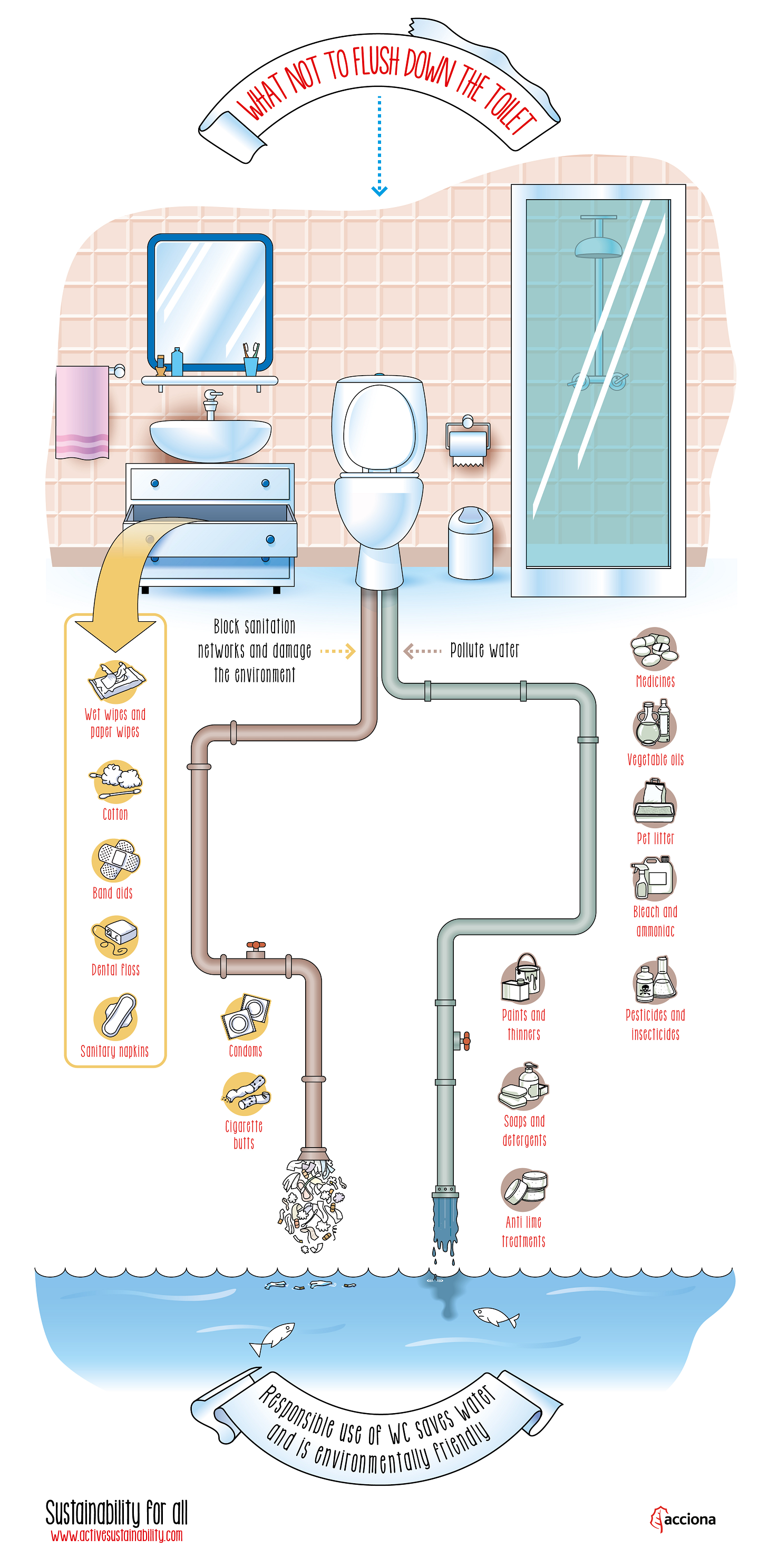Using the toilet as a bin is unfortunately a widespread habit in many homes around the world. A lot of people flush down the toilet products that clog pipes and pollute water unaware of the economic expense that the repairs entail and the enormous damage to the environment that this practice means.
In this infographic we show some of the everyday objects that most often end up arriving at sewage plants, rivers and lakes seriously damaging the sanitation network and marine biodiversity.
Elements that stall sanitation networks
Among the products responsible for blocking urban sanitation networks, generating significant repair costs that ultimately negatively impacting all citizens, we can find everyday tools like wet wipes, which are biodegradable, but their accumulation is one of the main causes of pipe blockages. Other objects commonly found in bathrooms, such as cotton, band aids, dental floss or sanitary napkins should be disposed in the trash and not in the toilet.
Cigarette butts and condoms are also responsible for significant pipe jams and other environmental damages.
Products that pollute water
For its part, it is also highly harmful to the environment to flush products made of pollutant materials down the toilet, as they cause diseases and deaths in aquatic flora and fauna, in addition to contaminating the water. It is common to find medicines, vegetable oils, cat and other pets litter, bleach and ammoniac, paints and thinners, pesticides and insecticides, soaps and detergents, and anti lime treatments among these products.
Therefore, it is important to place a wastebasket in the bathroom in order to get rid of these items in the correct way, the one stipulated by the recycling regulations in your area, in order to ensure water saving and adequate conservation of the environment and sanitation systems of homes and cities.
